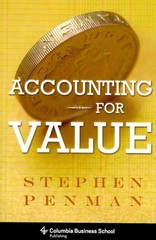Question
1. Which term describes and defines each XBRL financial element a. data dictionary b. descriptive statistics c. XBRL-GL d. Taxonomy 2. Which of the following
1. Which term describes and defines each XBRL financial element
a. data dictionary
b. descriptive statistics
c. XBRL-GL
d. Taxonomy
2. Which of the following is not a benefit of enterprise risk management?
a. reduces operational surprises
b. provides integrated responses to multiple risks
c. insures that the organization shares all major risks.
d. identifies opportunities
e. all of the above are benefits to an ERM
3. Which of the following is not a limitation to an Enterprise Risk Management System
a. Business objectives are not articulated.
b. The system may break down
c. Collusion can result in system failure
d. Enterprise Risk Management Systems are subject to system override.
4. When using [EmployeeID] as the unique identifier of the Employee table, [EmployeeID] is an example of which of the following?
a.Key attribute
b.Foreign key
c.Primary key
d.Composite key
5. Microsoft Power BI can be used for
a.Data analytics
b.Visualization
c.Finding insights from your data
d.All of the above
6. According to rules issued under the Sarbanes-Oxley Act, which of the following nonaudit services is an accounting firm permitted to provide for an issuer audit client without impairing the accounting firm's independence?
a..Providing an expert opinion in order to advocate the client's interest in litigation.b..Providing an expert opinion in order to advocate the client's position in a regulatory investigation.
c. Providing factual accounts in testimony explaining positions taken during the performance of any services provided to the client.
d..Providing legal services to the client in a foreign jurisdiction.
7. Which of the following factors most likely would heighten an auditor's concern about the risk of fraudulent financial reporting?
a. The audit committee's approval of the initial selection of accounting principles.
b. A lack of competition in the entity's industry, accompanied by increasing profit margins. c.Management's disclosure of unresolved litigation and contingent liabilities.
d. Year-end adjustments by the entity that significantly affect financial results.
8. Which of the following factors most likely would cause an accountant not to accept an engagement to compile the financial statements of a nonissuer?
a..A lack of segregation of duties in the entity's accounting and payroll departments.
b. Indications that reports of asset misappropriation are not investigated by management.
c..The entity's intention to omit from the financial statements substantially all of the disclosures required by GAAP.
d..Management's acknowledgement that the financial statements will be included in a written personal financial plan
9. The risk that a client's financial statements are susceptible to material misstatements is
a. control risk
b. inherent risk
c. audit risk
d. none of the above
10.A system that stores transactions in a single database, but process them at various sites is referred to as
a. Centralized system.
b. Database management normalization system.
c. Decentralized system.
d. Distributed system
Step by Step Solution
There are 3 Steps involved in it
Step: 1

Get Instant Access to Expert-Tailored Solutions
See step-by-step solutions with expert insights and AI powered tools for academic success
Step: 2

Step: 3

Ace Your Homework with AI
Get the answers you need in no time with our AI-driven, step-by-step assistance
Get Started


